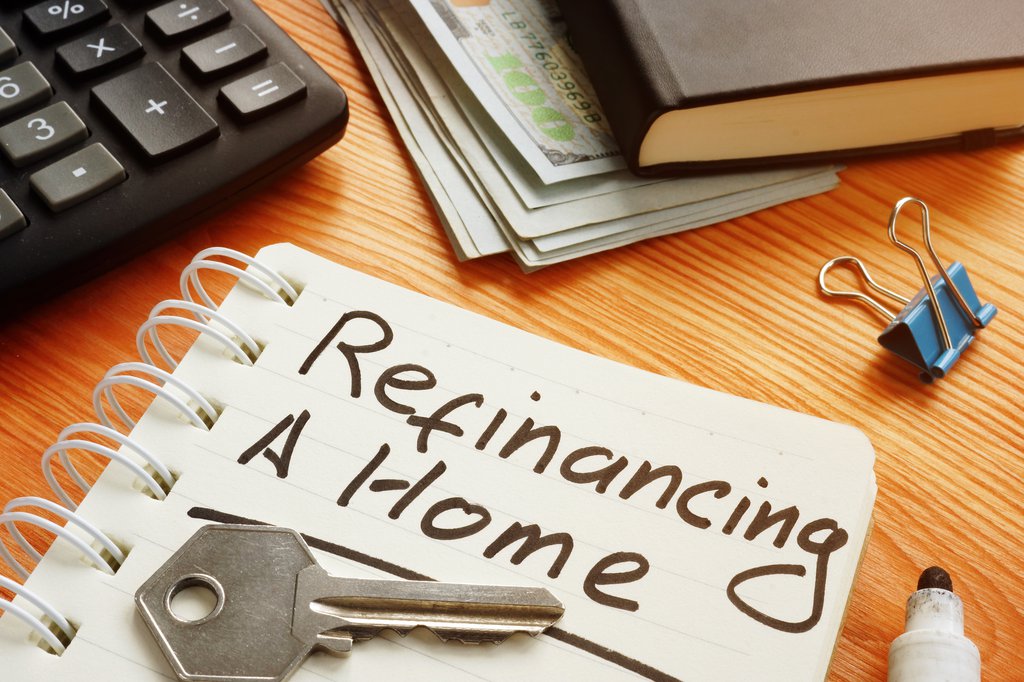When is it a good idea to refinance your mortgage?

Should You Refinance Your Mortgage Now?
Right at the outset, it is important to define what a refinancing actually means and what it entails for the borrower. When a person with a mortgage chooses to “refinance” it means that they are paying off their current mortgage with a new one. Thousands of people undertake this option every year for a variety of reasons. Some do it to secure a lower interest rate on the newly mortgaged amount, shorten the term of the loan, convert an adjustable rate mortgage to a fixed one (or vice versa), consolidate debt, tap equity, or any combination of the above. While the reasons can vary from borrower to borrower, pursuing a refinancing is an important financial decision that can save you thousands if done right. In this article, we delve deeper into these reasons for refinancing a mortgage, and when it might makes sense for a borrower to refinance their existing mortgage.
Reason #1: Reduce monthly repayments on the mortgage
Perhaps the most common reason that borrowers pursue a refinancing involves the opportunity to secure a lower interest rate on the mortgage. While the principal amount remaining will still stay the same, this lower rate applied to the outstanding principal can save thousands over the life of a loan. This is a relatively simple calculation to do. You start with the differential between the current interest rate being paid and the new rate being offered. Next, this is applied to the principal balance outstanding. The last step is to multiply it by the remaining term left on the loan. Let’s look at this with actual numbers.
Imagine a scenario where the borrower is paying 5% on a mortgage. At the time that the refinance is being contemplated, the borrower still has $500,000 remaining on the loan and 2 years left. A new lender then offers this borrower a 4% rate if they switch over from their existing lender. Thus, the differential here between the two rates is 5% - 4% = 1%. This 1% then gets multiplied by the principal (i.e. $500,000) to give $5,000 in annual cost savings provided this is an interest only mortgage loan and the borrower is not paying down any principal. Since there are two years left, the borrower has a chance to save $5,000 x 2 = $10,000 in interest costs for an interest only mortgage loan. There is a caveat here though! Early prepayments of loans can often incur penalties from the lender. Hence, before completing the refinancing on a mortgage that still have time remaining on the mortgage term, have a discussion with your mortgage broker to ensure that the savings outweigh any potential prepayment penalty.
Reason #2: When you are planning to reside in the home long-term
In many cases of refinancing, doing so only makes sense if the plan is to live in the home for an extended time period. The reason for this is that most refinancings take between several months to a few years to break even and start saving money. This is attributable to closing costs such as title insurance, attorney fees, home appraisal costs, transfer fees, taxes etc. As such, it may not be worth it to incur all of these fees if the borrower is only planning to stay in the house for a few more months.
The breakeven is also a relatively simple calculation to perform. Expanding on the example above, if the new loan saves $5,000 per year, then the monthly savings is roughly $417. All that has to be done here is to put this number at the denominator with closing costs as the numerator. For example, if closing costs totalled $4,170, then 4,170 divided by 417 = 10 months to break even. If the borrower is planning to sell the house prior to that 10-month mark, then it does not make financial sense to refinance.
Reason #3: Tapping into equity
Another reason why homeowners may choose to refinance the mortgage is to tap into the equity they have accumulated through their periodic pay-downs of the mortgage and/or through the increase in the value of their property. There are several ways to do this. One way could be by breaking the mortgage. However, the more common way is through a second mortgage or a home equity line of credit (HELOC for short). A second mortgage is when a homeowner uses the available equity in their home to get a mortgage that goes behind (in second position) to their first mortgage.
A second mortgage is usually provided by a private lender since the risk tends to be greater to the private lender as the security of their investment comes second to that of the first mortgage lender.
With a HELOC is a revolving line of credit that is provided by a lender to a borrower with the property secured as collateral on the loan. Thus, the size of the HELOC is a direct reflection of the equity in the house as verified by an appraisal. If someone does not have strong credit or might not qualify for a HELOC through an institutional lender such as a bank, then a private lender would be required for a second mortgage.
Tapping into the equity in the home offers several advantages. This could be used to pay down and consolidate higher interest debts, fund higher education for the borrower or their family, or even used for investment opportunities that may provide a higher return than the one being earned on the house.
Reason #4: Shorten the amortization term of the loan
In some cases, homeowners may choose to refinance a mortgage to reduce their amortization term from 25 years to 10, 15 or 20 years. By doing this, these borrowers pay less in interest costs over the life of the loan. However, the flip side of the coin is that their monthly payments increase, unless the borrowers is paying down a large sum prior to the refinance. Therefore, the key consideration for these scenarios is the calculation of the new, higher monthly payment and whether it fits within the borrower’s financial profile.
For example, a borrower may have recently got promoted into a job with a higher salary, in which case, they can now afford the higher cash outflow every month whereas previously, they would not have been able to do so while balancing other expenses. This is an individual decision that is best discussed with a financial advisor or equivalent.
Reason #5: Pay off higher-rate debt
After building up a certain amount of equity in the home, borrowers may find that they can use the equity proceeds to pay off debts incurred at higher interest rates than the home. In this case, they can then tap into the equity of their home (as discussed in Reason 3 above) and use the funds to pay off credit card debt, automobile leases and loans, student loans, and other higher interest loans, thus reducing interest payments for these debts.
In conclusion, mortgage refinancing can be a good financial decision if done correctly. To understand whether it is right for your individual situation, it is best to speak to a licensed broker who would be able to assess your personal situation and advise you of alternative options accordingly.





